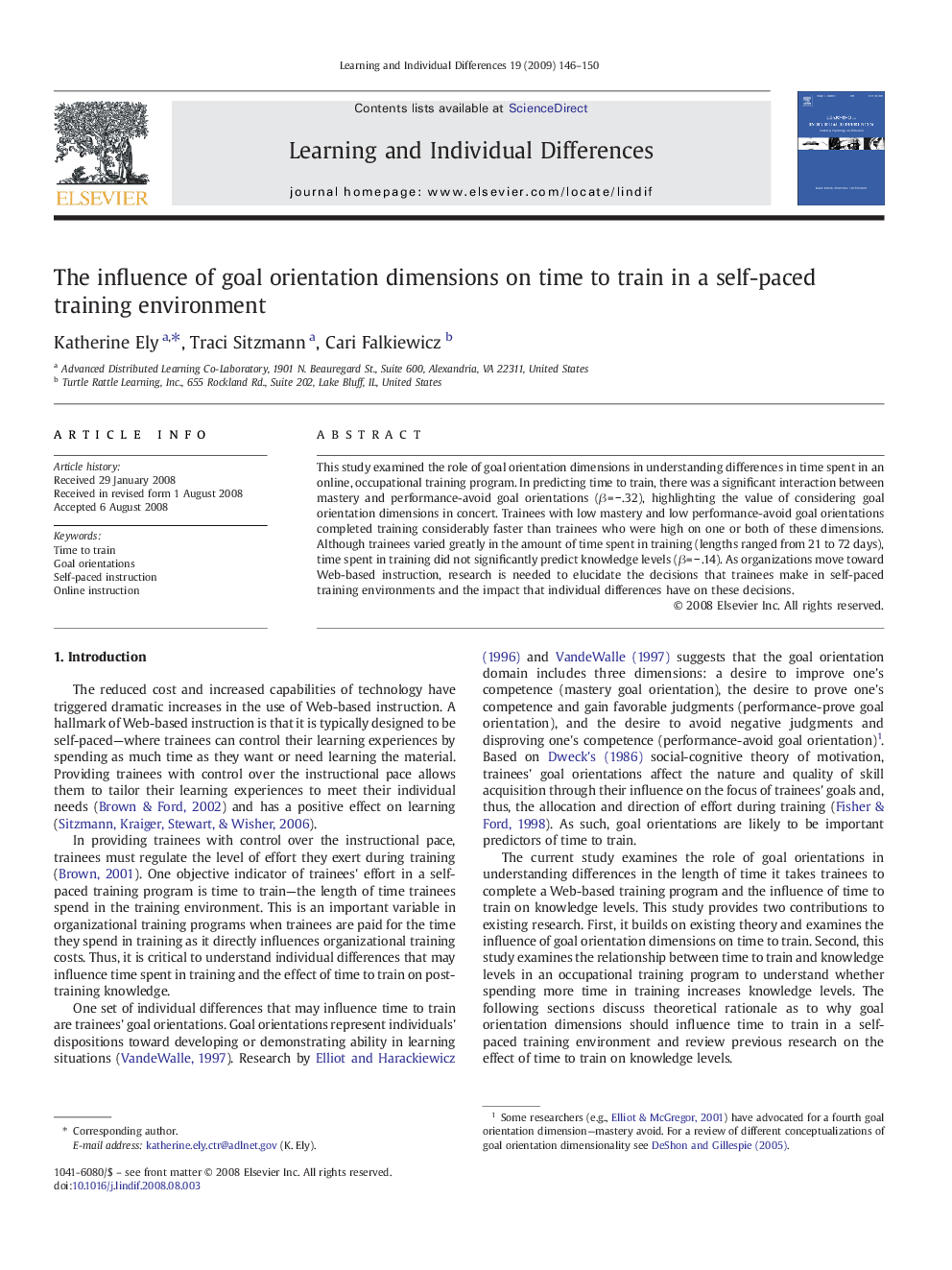| Article ID | Journal | Published Year | Pages | File Type |
|---|---|---|---|---|
| 365282 | Learning and Individual Differences | 2009 | 5 Pages |
This study examined the role of goal orientation dimensions in understanding differences in time spent in an online, occupational training program. In predicting time to train, there was a significant interaction between mastery and performance-avoid goal orientations (β = − .32), highlighting the value of considering goal orientation dimensions in concert. Trainees with low mastery and low performance-avoid goal orientations completed training considerably faster than trainees who were high on one or both of these dimensions. Although trainees varied greatly in the amount of time spent in training (lengths ranged from 21 to 72 days), time spent in training did not significantly predict knowledge levels (β = − .14). As organizations move toward Web-based instruction, research is needed to elucidate the decisions that trainees make in self-paced training environments and the impact that individual differences have on these decisions.
